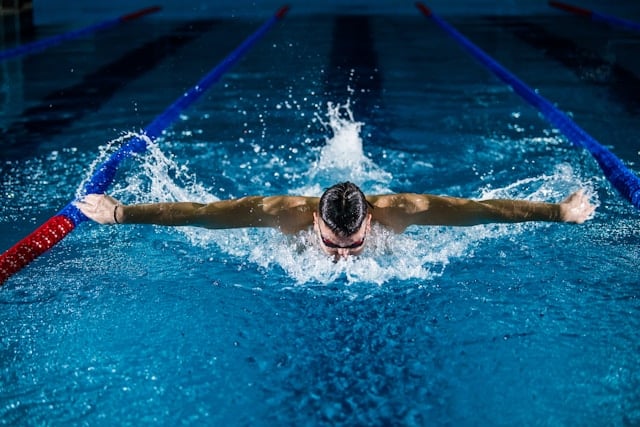As we delve into the realm of mental health and sport, we uncover an intriguing intersection between these two seemingly disparate fields. Particularly, the sport of boxing presents a unique case study in the exploration of mental resilience. Akin to other athletes, young boxers need more than physical strength and agility to excel in their sport. They also need mental resilience. Defined as the ability to rebound from stressors and maintain control in adverse circumstances, resilience is a psychological muscle that can be strengthened and developed with the right interventions.
In this article, we’ll delve into the various psychological interventions aimed at building resilience in young boxers. We’ll also explore the role of support, how exercise can affect mental health, and the importance of balancing work and training time in a week. This analysis draws on a wide range of resources, including research studies available via Google Scholar and Crossref.
Have you seen this : What’s the Impact of Real-time Heart Rate Monitoring on Performance in Competitive Swimmers?
The Role of Professional Mental Health Support in Boxing
Navigating the world of professional sports can be a daunting task, particularly for young athletes just starting their careers. Just as a physical coach is necessary for honing boxing skills, a mental health professional plays a crucial role in developing psychological resilience.
Professional mental health support can provide young boxers with an array of coping strategies to handle stress and maintain control even in the face of adversity. Cognitive-Behavioral Therapy (CBT), for instance, can help boxers identify and challenge negative thought patterns, fostering a more positive and resilient mindset.
Also to read : How to Craft Individualized Nutrition Plans for Vegetarian Athletes in Strength Sports?
Moreover, a mental health professional can work closely with athletes to detect early signs of common mental health problems such as depression or anxiety. Early detection and intervention can prevent these issues from escalating and negatively affecting the athletes’ performance and well-being.
Exercise and Mental Health
Aside from its known physical benefits, exercise is also a powerful tool in promoting mental health and resilience. Regular exercise triggers the release of endorphins, the body’s natural mood boosters. It also helps reduce levels of the body’s stress hormones, such as adrenaline and cortisol.
For young boxers, integrating a balanced exercise regimen into their weekly routine can have profound positive effects on their mental health. Besides their regular boxing training, they could also benefit from incorporating other forms of exercise, such as yoga or pilates, known for their stress-relieving properties.
However, it’s important to note that exercise should be seen as a complement, not a replacement, for other mental health interventions. Athletes should therefore not neglect seeking professional mental health support when needed.
Balancing Work and Training Time
Achieving a healthy work-life balance is another crucial aspect of mental health resilience for young boxers. The demands of training combined with the pressures of daily life can be overwhelming, leading to burnout and mental exhaustion.
Young athletes should therefore learn how to effectively manage their time and prioritize their tasks. Coaches and other support systems can provide guidance in this area, offering advice on building efficient schedules and maintaining a healthy balance between sport and life commitments.
In balancing work and training time, it’s also essential for young boxers to dedicate some time to rest and recreation. Time off from training can play an essential role in mental recovery, preventing burnout, and maintaining overall mental well-being.
How to Enhance Psychological Resilience through PMC
PMC, or Psychological Mental Conditioning, is a technique often used to enhance mental resilience among athletes. Essentially, PMC involves training the mind to cope with stress, maintain control under pressure, and bounce back from setbacks.
PMC can take various forms, such as mental imagery, self-talk, goal setting, and relaxation techniques. For instance, mental imagery, also known as visualization, can help boxers envision themselves succeeding in their matches, thereby boosting their confidence and resilience.
By incorporating these PMC techniques into their daily routines, young boxers can fortify their mental resilience, paving the way for greater success both in the ring and out.
In summary, building resilience in young boxers calls for a multifaceted approach, addressing various aspects of their mental health. Mental health professionals, balanced exercise regimens, effective work-life balance, and psychological mental conditioning techniques all play vital roles in this endeavor. With these interventions in place, these young athletes can be better equipped to handle the mental rigors of their sport and maintain their psychological health and well-being.
Enhancing Mental Toughness through Sports Psychology
The realm of sports psychology offers unique insights into the development of mental toughness in athletes, particularly young boxers. This discipline focuses on the psychological aspects of sports performance, including mental resilience, motivation, and cognitive functions, among others.
Sports psychologists often work closely with athletes, helping them develop optimal mental states for peak performance. By doing so, they enable athletes to better manage their emotions, enhance their concentration, and foster a stronger sense of control, which is paramount for building resilience.
Grounded in scientific research from various sources such as Google Scholar, PubMed, and Crossref, sports psychology offers practical strategies for resilience training. These include techniques like cognitive restructuring, where athletes learn to identify and challenge negative thoughts, and stress inoculation training, which involves gradual exposure to stressors to improve coping skills.
Mindfulness is another technique often used by sports psychologists to build resilience in athletes. This approach, which focuses on being present and accepting of one’s emotions and thoughts without judgment, has been demonstrated in numerous studies, including a systematic review available via PubMed and Crossref, to reduce symptoms of anxiety and depression while boosting mental toughness.
That said, sports psychology interventions must be tailored to the individual boxer’s needs and personal development, ensuring a holistic approach to nurturing mental resilience.
The Impact of Physical Activity on Stress Resilience
It’s widely recognized that physical activity is beneficial for both physical and mental health. However, its role in developing stress resilience, particularly among young boxers, is less understood.
Research studies available on PubMed, Google Scholar, and Crossref have indicated that regular physical activity can enhance an individual’s ability to manage stress. This is due to the release of endorphins, often referred to as ‘feel-good’ hormones, following exercise.
A current study published in PMC Free Article suggests that physical activity, such as boxing training, can help individuals better manage their stress levels. In this study, athletes who engaged in regular physical activity were found to exhibit lower levels of stress and depressive symptoms compared to their inactive counterparts.
Moreover, incorporating different forms of physical activity, such as yoga or Pilates, into their training regimen can further enhance a young boxer’s stress resilience. These activities are known for their calming effects, which can help boxers better manage their emotions and maintain a sense of control under pressure.
However, like any other mental health intervention, physical activity should be tailored to the individual boxer’s needs and preferences, ensuring it’s both enjoyable and beneficial to their overall mental health.
Conclusion
Resilience is a crucial psychological trait for young boxers, enabling them to bounce back from setbacks and handle the pressures of their sport. As indicated by the diverse research available on Crossref, Google Scholar, and PubMed, enhancing mental toughness and stress resilience in these athletes involves a multifaceted approach.
From seeking professional mental health support to engaging in balanced physical activity, from achieving a healthy work-life balance to utilizing psychological mental conditioning strategies, each plays a crucial role in an athlete’s resilience training.
However, the most effective interventions will always be those tailored to the individual boxer’s needs, ensuring a personalized and holistic approach to building resilience. As such, it’s crucial for coaches, sports psychologists, and other support networks to work closely with young boxers, guiding them in nurturing their psychological health and resilience.
As we continue to delve deeper into this fascinating intersection of mental health and sport, we look forward to uncovering more strategies and interventions to support these young athletes in their journey towards both physical and mental excellence.











